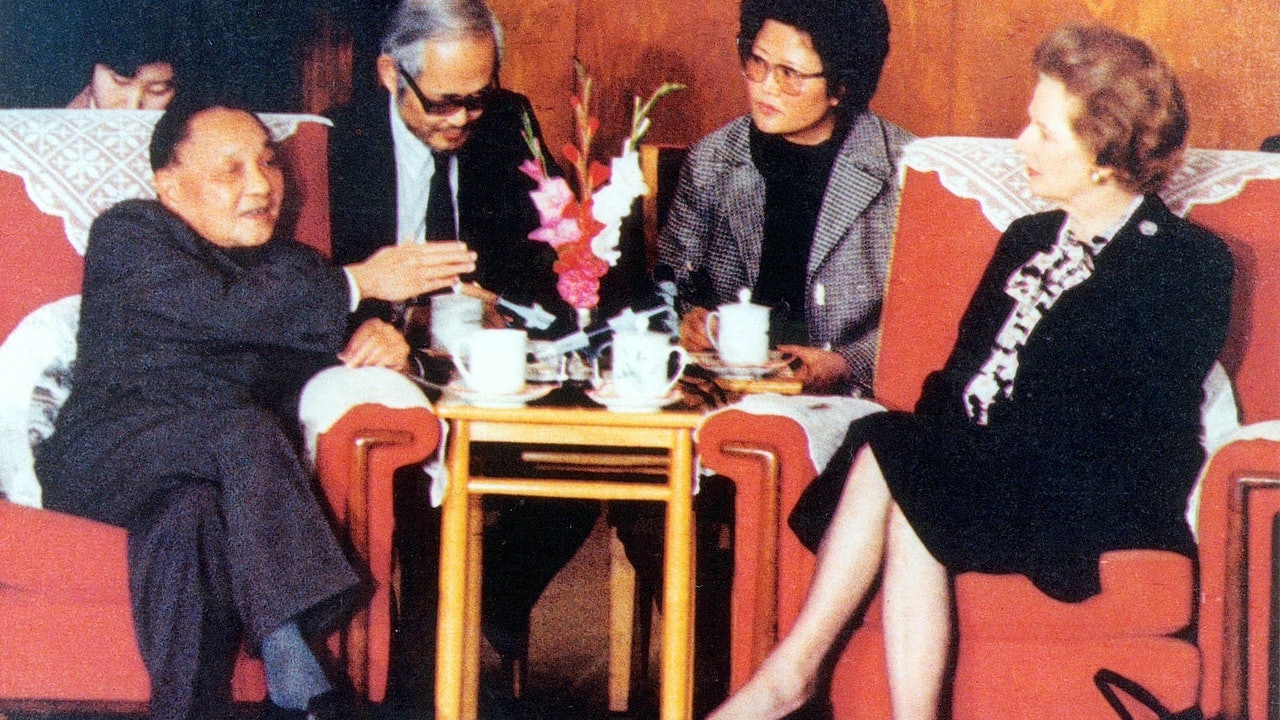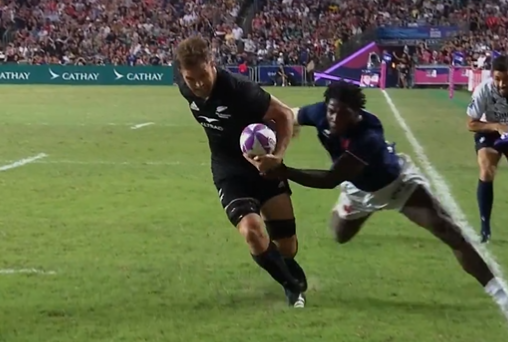When the fifth wave of the epidemic in Hong Kong was the most severe, "Hong Kong 01" mentioned in the article "Three Traps Force a Cognitive Revolution" Xi Jinping Rarely Instructs Hong Kong to Stabilize the Epidemic In addition to facing and reflecting on the visible problems and contradictions, it is also necessary to correct the deeper cognitive traps, including the blind worship of laissez-faire liberalism, the myth of the European and American model, and the misunderstanding of "one country, two systems" itself.
As Hong Kong finally had to "coexist with the virus" after struggling for a while, coupled with the rapid outbreak of the epidemic in the mainland, especially in Shanghai, the cognitive revolution that was expected to be driven by the fifth wave of epidemics was immediately aborted.
Not only Hong Kong's own cognitive traps have not been buried and taken seriously, but also Hong Kong people's perception of the mainland has been further consolidated due to the various events that occurred during the epidemic prevention and control in Shanghai. And began to envy Hong Kong's free movement.
In addition to the general cognitive traps mentioned above, there are still many specific cognitive traps in Hong Kong society that need to be rectified.
The statement "Hong Kong was never a British colony" that has recently attracted widespread public attention is one of them.
At 0:00 on July 1, 1997, the Chinese and British governments held a handover ceremony for Hong Kong, and Hong Kong officially returned to China.
(VCG)
In the established perception of many Hong Kong people, Hong Kong was of course a British colony for more than 150 years before the handover. This is a basic historical fact. Therefore, this new book on citizenship emphasizes that "Hong Kong does not have colonial status" and "Britain is only a colony." To implement colonial rule in Hong Kong" is to "rewrite history" and "overthrow history", and is to engage in "brainwashing education".
There is also a view that the return of Hong Kong is an established fact, and both sovereignty and governance are firmly in our hands. Does it make sense to play these word games?
Before declaring "rewriting history" and asking rhetorical questions, it is necessary to clarify two basic premises:
First of all, "Hong Kong does not have colonial status." This is the official position of the central government for a long time, and it is also supported by international law. This time, it is only reconfirmed in the civics textbook.
Specifically, the Manchu Qing government was forced to sign an unequal treaty with the United Kingdom after losing two Opium Wars, ceding Hong Kong Island and the Kowloon Peninsula, and then signed the "Special Clause for the Expansion of Hong Kong's Boundaries", allowing the British government to lease New Territories for 99 years.
The central government believes that these unequal treaties were forced to sign by the Manchu and Qing military defeats, so they have never been recognized and never renounced Hong Kong's sovereignty.
In this regard, it is also explained in the textbook that colony means that the country enjoys local sovereignty and governance rights, while colonial rule means that the country has governance rights but not sovereignty. Therefore, Hong Kong is not a British colony.
On August 29, 1842, the Qing Dynasty was defeated in the First Opium War with Britain.
Representatives of the Qing government signed the Sino-British Nanjing Treaty with the British on the British flagship Kang Hua, which was moored on the Xiaguan River in Nanjing.
The treaty included the cutting of Hong Kong Island to the United Kingdom.
(Web image)
The central government's "non-recognition" is supported by international law.
Article 52 of the Vienna Convention on the Law of Treaties, adopted on 22 May 1969, states: "If a treaty is concluded by the threat of force or by the use of force, contrary to the principles of international law embodied in the Charter of the United Nations, the The treaty is invalid."
On March 8, 1972, Huang Hua, the then Permanent Representative of China to the United Nations, sent a letter to Salim Ahmed Salim, Chairman of the United Nations Special Committee on Decolonization, on the Hong Kong and Macau issues.
According to Huang Hua himself, the Chinese delegation demanded: "The erroneous reference that Hong Kong and Macau belong to the so-called 'colonial' category should be immediately removed from the documents of the Special Committee on Decolonization and all other documents of the United Nations." The committee discussed this and submitted a report to the UN General Assembly, recommending that Hong Kong and Macau be removed from the list of decolonization.
On November 8, 1972, at the 27th session of the UN General Assembly, a resolution was finally passed with 99 votes in favor and 5 votes against, approving the report of the Special Committee.
Secondly, although there is only one word difference between "colonial" and "colonial rule", the meaning behind it is very different. This is not only a historical issue, but also concerns the future of Hong Kong.
As mentioned earlier, colony means that the country enjoys local sovereignty and governance rights, while colonial rule means that the country has governance rights and does not have sovereignty.
The Declaration on the Granting of Independence to Colonial Countries and Peoples proclaimed by the United Nations resolution on December 14, 1960 asserts that "colonial countries and peoples" have "the right to self-determination", while "Hong Kong has never been a colony" means that Hong Kong has not had "the right to self-determination" from the very beginning. right to self-determination".
Former member of the Standing Committee of the National People's Congress and former chairman of the Hong Kong Legislative Council, Fan Xu Litai, said in an interview with the media on the 17th that some Western media have recently hyped up "the new edition of Hong Kong textbooks say that Hong Kong was never a colony", and the underlying intention is to promote them "Hong Kong was once a colony". The political narrative of a colony, self-determination and independence” planted the seeds of unrest in Hong Kong.
Fan Xu Litai mentioned that whether Hong Kong is a colony involves a very critical issue - according to the relevant provisions of the United Nations, people in areas with "colonial" status have "the right to self-determination" and can establish an independent state.
Therefore, some British and American media are hyping up the content of Hong Kong textbooks, but in essence they are trying to promote the wrong concepts that have permeated Hong Kong for many years, such as "Hong Kong independence" and "self-determination referendum".
Fan Xu Laitai, a former member of the Standing Committee of the National People's Congress and former chairman of the Hong Kong Legislative Council, said in an interview with the media that some Western media have recently hyped up "the new edition of Hong Kong textbooks say that Hong Kong was never a colony", and the underlying intention is to promote them "Hong Kong was a colony, have the right to self-determination and seek independence” political narrative.
The picture shows Fan Xu Litai attending the Youth Forum and speaking on May 4, 2015.
(Xinhua News Agency)
"China has never given up its sovereignty over Hong Kong, nor has it recognized the legitimacy of British rule over Hong Kong," said Fan Xu Litai. "The expression we always use is, 'Resume the exercise of sovereignty over Hong Kong'." The SAR government is now doing It is only to gradually clarify and correct these misconceptions that the West has hoped for Hong Kong people to accept for a long time. "Only teachers and students in Hong Kong can correctly understand history, so that events like "referring to Hong Kong's self-determination" can be avoided from happening again. This is a It's a very good thing, it's a reversal of the historical narrative that has been distorted by the West."
Therefore, "Hong Kong has never been a British colony" is not the "rewriting of history" or "brainwashing education" that people take for granted, but a return to basic historical facts.
However, it is not easy for the general public to understand the difference between "colonies" and "colonial rule" from the very beginning.
On the one hand, at the beginning of the return, these basic concepts did not attract enough attention, and there was no timely corrective action. It has been put on hold to this day, naturally resulting in a lot of discomfort and rejection; , worried that Hong Kong would become an undefended city, an anti-communist base, and even move towards self-determination and independence, so he launched the "Hong Kong National Security Law" by means of thunder, revised the electoral system, and set things right in many fields such as education and media. It has overall governance and is ultimately responsible for the stability and long-term success of "One Country, Two Systems". However, since these actions are on the extension line of the turmoil over the amendments, many Hong Kong people will still interpret them as the result of "stimulus-response". Rather than the presentation of basic facts based on a longer historical context and the support of international law, this is also the reality and background of today's Hong Kong society when viewing the central government's measures.
Although the protracted turmoil of the amendment bill that broke out in 2019 has passed, its impact on Hong Kong is still there.
(AP)
In less than ten days, it will be the 25th anniversary of Hong Kong's return to the motherland. At present, various celebrations have been launched one after another, and speculation about whether President Xi Jinping will visit Hong Kong is also uninterrupted.
In the 25-year time period, Hong Kong has had its heyday and glory, as well as chaos and agitation, especially the big and small incidents that have occurred in the past three years. Looking back now, although there is greater inevitability in addition to chance, it still makes many Unexpected, unexpected.
So when the news of the sinking of the treasured seafood boat that accompanied Hong Kong people for 46 years came, people couldn't help but sigh: this is a metaphor and the end of an era.
How Hong Kong can set off after the storm, just like the cognitive impact brought by the once-in-a-century epidemic to people, Hong Kong also needs to get rid of myths from the cognitive and conceptual level.
"Hong Kong has never been a British colony", it is only the beginning of the cognitive revolution. The blind worship of laissez-faire liberalism, the myth of the European and American model, and the misunderstanding of "One Country, Two Systems" itself, etc. mentioned at the beginning of the article also need to be corrected.
And this is far more difficult than to understand that "Hong Kong was never a British colony", and it is also the key to the future development of Hong Kong.
Overturn history or set things right?
Historians reveal the logic behind "Hong Kong is not a colony"|Three traps force a cognitive revolution Xi Jinping rarely instructs Hong Kong to stabilize and control the epidemic for 25 years.



/cloudfront-eu-central-1.images.arcpublishing.com/prisa/3I74UEXLYRBBRPGPSGWNN6WXH4.jpg)



